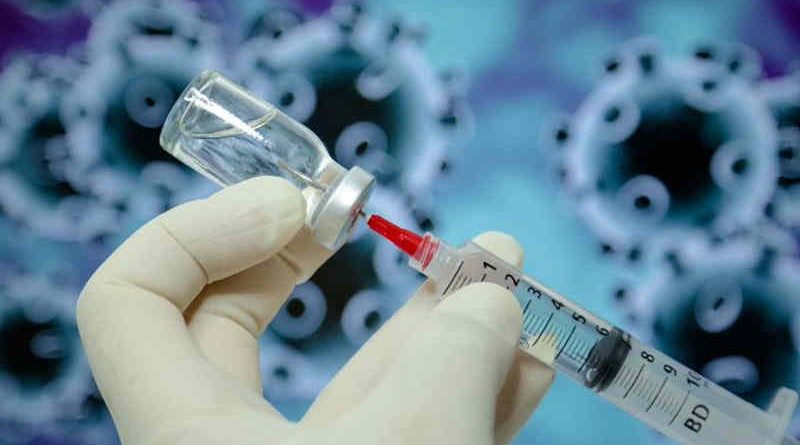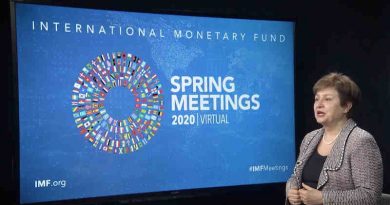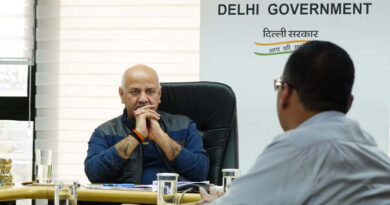Supreme Court Notice on Transparency of Covid Vaccine Data

The vaccination is unlikely to contain the contagion in India because the pace of vaccination is very slow while the infection is spreading rapidly.
By Rakesh Raman
The Supreme Court on Monday (August 9) issued a notice to the Indian government to file its response on a petition seeking transparency of Covid-19 vaccine data. The petition filed by Jacob Pulayil has sought information on the clinical trials conducted for Covid-19 vaccines while there are serious doubts about the efficacy of Covid vaccines.
Pulayil – a former member of the government’s National Technical Advisory Group on Immunization – has filed the petition through advocate Prashant Bhushan. It has named the Central government, Central Drugs Standards Control Organisation represented through Drug Controller General of India (DCGI), Indian Council of Medical Research (ICMR), and vaccine manufacturers Bharat Biotech (Covaxin) and Serum Institute of India (Covishield) as respondents.
According to a report in the Hindustan Times on August 10, a bench of justices L Nageswara Rao and Aniruddha Bose issued the notice on the petition. But the judges said their notice should not send a signal on the safety of the vaccines which could add to vaccine hesitancy, as the pandemic situation is still grave in the country.
The petition has demanded data from the government for each phase of the clinical trials and stated that people are being deprived of their livelihood and access to essential services for not being vaccinated. The petition also sought an interim stay on such vaccine mandates, particularly when the data on the effectiveness of vaccines is not available publicly.
As a journalist and social activist, I (Rakesh Raman) had filed a petition before the National Human Rights Commission (NHRC) of India in June to get the fundamental human right of bodily autonomy of the people of India protected as the Government of India and state governments are carrying out Covid-19 tests and vaccination drives.
Bodily integrity means the inviolability of the physical body and it allows personal autonomy, self-ownership, and self-determination of human beings over their own bodies. The violation of the bodily integrity of another person is regarded as an unethical infringement, intrusive, and a possible criminal act, and therefore it amounts to human rights violation. But the NHRC sent me a vague, off-the-cuff response and did not allow me to discuss the issue further.
Bhushan alleged that data on the adverse events following immunization was being suppressed, endangering more lives. The court is expected to hear the case again after four weeks. During this period of inaction, people will keep getting infected and many of them will die. But the court is not bothered.
Since most courts and judges in India lack domain expertise and judges lack courage to take any decision that may displease their government bosses, the Indian legal system is plagued by random judgments and long delays.
As a result, there is a backlog of nearly 4 crore (40 million) pending cases in the Supreme Court, various high courts, and the district and subordinate courts. Reports suggest that the pending court cases in India have been rising rapidly during the past one year when the courts became even more sluggish during the coronavirus outbreak.
MYSTERY OF VACCINATION
As mystery continues to shroud the effectiveness of the Covid-19 vaccination projects, it is difficult to know if more people are dying with infection or with vaccination. Since a number of cases came up during the past couple of months where people got infected after receiving the vaccine, the debate has shifted from vaccine distribution to vaccine safety.
Contrary to the Covid-19 vaccine efficacy claims, hundreds of fully vaccinated people in England have been admitted to hospitals with the highly noxious Delta coronavirus variant.
In its latest Covid-19 update released on August 6, experts at Public Health England (PHE) said that 55.1% (or 808 people) of the 1,467 people hospitalized with the Delta variant during July 19 to August 2 were unvaccinated while 34.9% (or 512 people) had received two doses of the Covid-19 vaccine.
The health agency also said that vaccines may provide high levels of protection, but they are not 100% effective and will not stop everyone catching Covid-19. As more of the population gets vaccinated, according to PHE, there will be a higher relative percentage of vaccinated people in hospitals.
In order to get fully inoculated, all recipients in the United Kingdom are required to take two doses of vaccines produced by AstraZeneca, Moderna, or Pfizer-BioNTech. Nearly 75% of the UK’s adult population has received two shots as of the first week of August.
But the protection of the fully vaccinated people is not guaranteed as they may get infected and transmit infection like those who have not been vaccinated. In other words, vaccines cannot protect you from the Covid infection.
Similar reports of the ineffectiveness of vaccines are coming from India, which has become the global hotspot of coronavirus. About 56% of people hospitalized for Covid-19 in the Indian city Bengaluru in July had received at least one dose of the vaccine.
According to reports, the official sources at the Bruhat Bengaluru Mahanagara Palike (BBMP) said that about 2,700 people were hospitalized between July 2 and July 27. Of these, 1,600 had received at least one dose of a vaccine, comprising 1,200 Covishield and 400 Covaxin receivers and 180 had the second dose.
The vaccination is unlikely to contain the contagion in India because the pace of vaccination is very slow while the infection is spreading rapidly. According to the Financial Times Covid-19 vaccine tracker, as of August 8, India had fully vaccinated only 8.3% of its population. At this speed, it will take years before the entire Indian population is vaccinated while the vaccines are not effective on the new variants.
Now, the debate is gaining momentum that the already vaccinated people will have to get a third “booster” shot to fight infection. That means, the current doses of vaccines cannot protect people from coronavirus and its variants.
As vaccines have either adverse effects or no effect, the July data from the World Health Organization (WHO) showed a substantial rise in coronavirus cases particularly in the Americas (30%) and the Western Pacific (25%) regions.
The increase in cases has also contributed to a sharp rise in the number of coronavirus deaths, which climbed by 21% compared with the week beginning July 21, to more than 69,000.
By Rakesh Raman, who is a national award-winning journalist and social activist. He is the founder of a humanitarian organization RMN Foundation which is working in diverse areas to help the disadvantaged and distressed people in the society.




